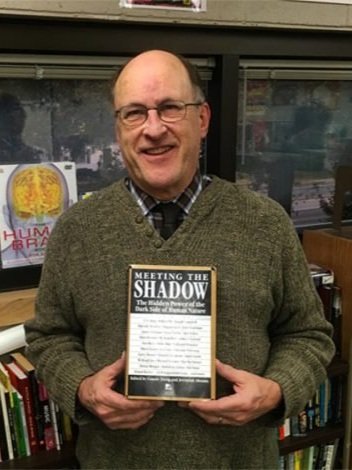A Reading for the Fall Program
By Bill Bornschein | August 30, 2011
As many of you know, the EBF Fall Program will have an environmental focus. With this blog I’d like to suggest a reading that would be an excellent preparation and perhaps provide a common foundation for the variety of perspectives that will be presented. The book that I have in mind is entitled Anthill by Harvard professor E.O. Wilson. Professor Wilson is a naturalist whose prolific teaching and writing career has opened the study of nature to a broader audience much as Carl Sagan has done for cosmology and Joseph Campbell has done for mythology. Wilson won the Pulitzer Prize for The Ants and The Naturalist. The book Anthill represents his first foray into fiction. Well, fiction of a sort, because the adventures of the main character, Raff Cody, mirror the youth and maturation in rural Alabama of Wilson himself. In broad strokes it is the story of a young man’s love of nature, his education in the forest, and his commitment as an adult to protect the land. Early in the book young Raff has a near death encounter with a poisonous snake. The experience shakes him and, “In time he understood that nature was not something outside the human world. The reverse is true. Nature is the real world, and humanity exists on islands within it.” The proximity of death deepens his understanding of both the fragility and sacrality of life. The remainder of the book deals with issues of population, religion and politics as Raff battles to preserve the land he loves.
The particular feature of Anthill that speaks to the EBF Fall Program is the marriage of deep scientific understanding with a powerful love of the land. Wilson is a brilliant scientist, and the book is filled with information about the culture of ants. Far from being sterile data, however, it is embedded in a narrative that could only be written from direct experience. It is this direct experience of nature that has motivated Wilson in his own life and empowers his novel’s protagonist. As we try to understand the powerful grip of ideology and dogma in the face of overwhelming scientific evidence, it is tempting to throw our hands up in despair and lament the stubbornness of others. This is where Wilson’s message is particularly helpful. Concern for nature is not born of abstraction but rather direct experience. I’ve seen this in my own classroom. Teaching about environmental issues can be a political minefield, and I’ve had classes blow up in my face. One day, I hit upon a strategy that has made a real difference. I began the unit by asking my students to write about where they played outside as a child, perhaps tell a story about the place. Stories flowed. Then I asked them about what the place was like today. In many cases, the ‘cool woods’ or ‘awesome field’ was no more, a victim of urban sprawl. The tone of the classes changed as the students realized that environmentalism was also their own story. They had a dog in the fight so to speak.
A number of years ago I attended a workshop with poet Robert Bly. At one point Bly told the original version of what has come to be known as the story of Beauty and The Beast. Originally an Italian folk tale, the early version reversed the gender of the two main characters. The Beast was female. Bly explained that it was a nature allegory and that the central message was that Nature is horrible…until you love it and then it becomes beautiful. In essence, this is Wilson’s message in Anthill. I encourage you to read this book, take it to heart, and then take it to Seattle for the Fall Program.

